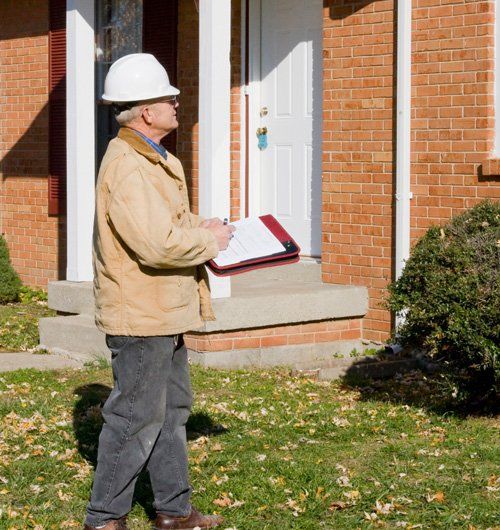
Title Companies in Odessa, TX
At Basic Abstract, we offer you an extensive list of home buying tips below that will help you get the most out of the home buying process.

Buying Process
For most people, buying a home is the most important and significant investment you are likely to make. The process can also be extremely confusing and frustrating. The more research and information you are able to gather, the easier it will be for you to make a sound, well-informed decision.
Familiarize Yourself with the Market Place
You should spend time studying the real estate market in the area in which you are looking for real estate. With the advent of the internet, you are able to take advantage of the most organized and efficient method of examining the market, right from your own home. With so many listings available right at your fingertips, this is a resource you need to use to your advantage.
Define Your Price Range
You can simplify the home shopping experience by figuring out exactly how much you can afford to spend. You should base your budget and price range on your financial status. Generally, you want your monthly house payments, taxes and insurance payments to be no more than one third of your gross monthly income; however, your lifestyle and the amount of time you plan to stay in the house could affect this price. It’s important for you to sit down and discuss your situation with a lender who can help formulate the right program for you.

You also need to consider what your down payment will be. You will want to have at least 20% of the price; otherwise, you may be required to get Private Mortgage Insurance or a Mortgage Insurance Premium, either of which will increase your monthly payments. Be sure to ask your lender for details.
You, as the buyer, will also be responsible for any associated closing costs to complete the transfer of property.
You should look into what closing costs might be for the property or properties into which you are looking.
Your lender may also be able to help establish your price range with Pre-Qualification and/or Pre-Approval programs. Be sure to ask your lender about these or other programs they may offer for assistance.
Consulting escrow companies for advice when buying a home is always a good idea.
Choose a Real Estate Agent
Finding the right real estate agent can save you a lot of time, money, and confusion. Again, with the internet, you have an invaluable resource at your fingertips, allowing you to do much of the research in the comfort of your own home.
Things to consider when choosing a real estate agent include:
List of Services
Remember that you will be spending a lot of time with your real estate agent during your home buying process, so make sure that the agent you choose is someone with whom you feel comfortable.
Home Selection
You should take the time to list and prioritize the requirements you need in a home before you meet with a real estate agent. In addition to things such as size, price and location, there are other things that you can consider:
List of Services
There are several other factors to look into, but you should also be open to compromise - there are times when there simply won’t be a house that is perfect for you, but your agent will do everything possible to find your dream home. Once you have established your needs, your real estate agent will make all the necessary arrangements for each house viewing.

Writing the Sales Contract
Your real estate agent can provide you with everything you need to make your purchase decision, including sale prices of comparable properties. There are many contingencies which may be included in your sales contract, some of which might already be present as optional clauses and some which are available as separate riders.
Discuss your negotiation strategy with your agent. Your agent is representing you (except in cases where he or she is acting as a dual agent who represents both the buyer and seller), so take advantage of your agent’s expertise to get the best possible deal.
Contract Presentation
Your real estate agent will present the seller and/or seller’s agent with the contract and the earnest money. The agent will then relay the seller’s counter-offer and continue to advise you throughout the process until an agreement is reached.
Your real estate agent is as interested in a successful transaction as you are, so depend on your agent for all the advice and assistance you need.
Terms of the Contract
When you have reached an agreement with the seller, both of you will sign and initial any changes made to the contracts and riders. Be sure to take note of any specific dates by which contingencies must be met, all of which will be drawn out within the body of the contract.
Loan Contingency
The lender will make arrangements to have the property appraised to estimate the market value of the property. This appraisal is required, as lenders will not loan you more than a given percentage of the value of the property.
If the appraisal turns out to be less than the agreed purchase price, then your mortgage may end up being smaller and you may be required to pay a larger down payment.
If any of the terms specified in the loan contingency rider cannot be met, then you have the right to withdraw the contract and have your earnest money refunded to you.
Buyer's Expenses
The costs and expenses that you will need to come up with to buy a home include:
- Down Payment
- Loan Application Fee (covers the appraisal and credit report)
- Loan Origination Fee (or assumption fee if the loan is going to be assumed)
- Loan Discount Fee or Points
- Recording Fees for Deed & Mortgage
- Loan Policy of Title Insurance Required by Lender
- 1st Year Prepaid Home Owner's Insurance
- Inspections, if applicable
- 1st Year Prepaid PMI (Private Mortgage Insurance), if applicable
- Attorney, if applicable
- Interest from the date of closing til the end of the month (unless FHA or VA loans, which have no payment the first month, interest is paid in arrears)
- Escrow for Real Estate Taxes (how much depends on the lender and on the month of closing), Home Owner's Insurance and, if applicable, PMI
- Closing Fee to the Title Company
There will be a tax credit from the seller for the unpaid real estate taxes, up to the closing date.
Attorney
Having an attorney is not required by law, but it would be well worth it, if for no other reason than your own peace of mind, to have a reputable attorney review the sales contract and all riders to make sure that everything is correct and worded properly. An attorney may see fit to add an approval contingency which must be made a part of the sales contract, with changes requested in writing within the sale contract time limits.
Home Inspection
You need to have your home inspected within a certain number of days from the date of acceptance of the contract. The inspector will go through the home, describing its condition, identifying major problems and how to address them. If there are any major problems discovered, you would then have the right to renegotiate the terms of your contract.
Radon tests and/or termite inspections can be performed if they are explicitly made part of the contract. If you choose a FHA or VA loan, the inspections must be done by an FHA or VA approved inspector and must be a part of your loan arrangement.
Be sure to consult your professional real estate agent for advice.
Arrange for Home Inspection
Generally, you, as the home buyer, would make the appointment for the home inspection, with the real estate agent handling all the necessary arrangements. It is crucial that you remember to complete the inspection and any resulting requests by the date specified, or the inspection rider will be voided.
Loan Application
Once you have found a home, offered a contract, agreed on the price and terms, it is then time to apply for the loan, approval of which is required by the date specified in the sales contract. Better yet, have your pre-approval done before you submit your contract. This could possibly help you in the event the seller has received multiple offers.
Home Owner's Insurance
Your mortgage lender will require you to have minimum insurance coverage, including one year prepaid before closing. You must furnish the lender and the title company with your policy information and annual premium before closing.
Many home buyers choose to consider broader coverage for protecting their new home, including any or all of the following:
- Damage to Your New House and Other Structures on Your Property
- Damage to or Loss of Your Personal Belongings
- Loss of Use of Your Home Because of Damage to it
- Liability Claims Through Lawsuits
- Other Risks
Call your insurance agent for additional information to insure proper coverage.
Flood Insurance
If the home you are buying is located within a designated flood plain as determined by the Flood Plain Maps or the Department of Housing and Urban Development, your lender may require you to buy flood insurance.
Arrange for Utilities
You need to contact the utility companies to have the gas, electric, water and sewer, garbage, telephone, etc. turned on, starting on the closing date, as the seller may have these turned off by then.
Arrange for Final Walk-Through
Your real estate agent will schedule a final “walk-through” a few days prior to the closing date to ensure that everything is in the same condition as it was when the original contract was signed.
Closing
Closing refers to transferring ownership of the property from the seller to the buyer. The lender, attorney, title company, or escrow agent will make sure that all terms and conditions of the transaction are met, depending on where you live.
Your attorney, lender, or the title company will provide you with the closing costs figures that you need to bring to the closing. This money must be in the form of a wire transfer, certified check, cashier’s check, or money order.
The Closing Agent will:
- Accept and Coordinate the Flow of Documents
- Prepare a Closing Statement of the Entire Transaction
- Verify and Collect Closing Costs and Down Payment Funds
- Make Sure All Documents are Signed Correctly
- Pay All Existing Mortgages, Liens, & Real Estate Taxes
- Arrange Recording of the Deed and Mortgage
- Secure Title Insurance
There may be several title companies serving the greater Odessa, Texas area, but you can trust your real estate transaction in the hands of the best – call Basin Abstract & Title at 432-363-5231 today.

